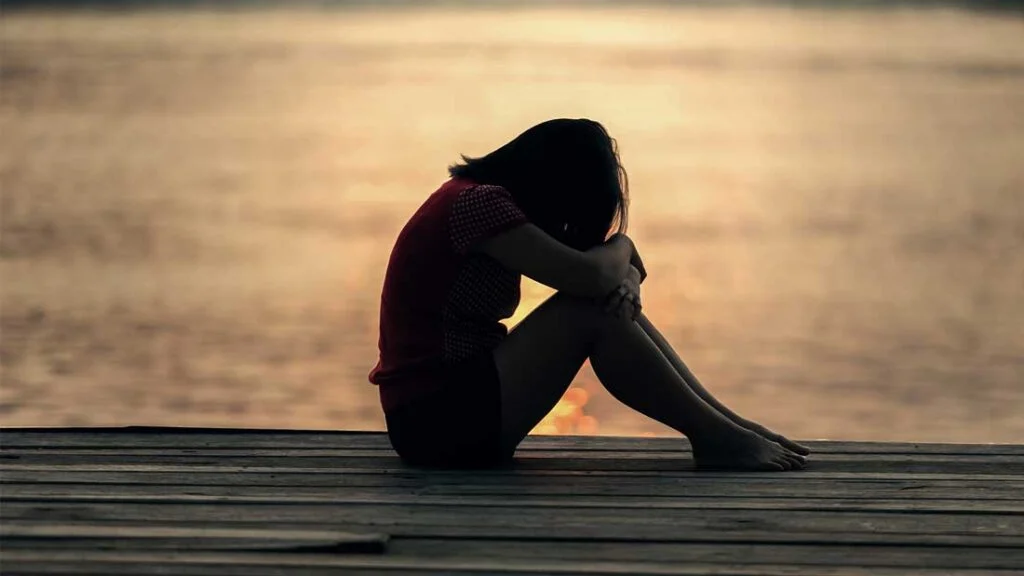
This might be shocking to hear but not getting enough sleep might help relieve depression, a new study finds. Weird, right?
The study was published on June 20 in the Proceedings of the National Academy of Science USA journal. It concluded that not getting enough sleep can actually put you in a better and more cheerful mood.
We were truly surprised by the results, because it’s hard to believe that not getting enough sleep can actually make you happier. For us, we know that not getting enough sleep tends to put us in a sluggish and moody state so we decided to look further into this study and also have an expert give us some insights.
We definitely didn’t want to make any irrational decisions about our sleep schedule before learning more. Are you still intrigued like we are? Then you’re going to want to keep reading.
The Findings From the Study
To truly understand how much sleep deprivation can affect participants with depression, the author of the study and professor of clinical psychology at the University of Pennsylvania, Philip Gehrman, decided to put this to the test.
Gehrman gathered 30 participants who suffered from depression and tested their mood changes when they did not achieve a good night’s rest. To create a control group, Gehrman and the other researchers took 54 participants without depression. Sixteen of those individuals served as controls since they did not experience sleep deprivation for the experiment.
The experiment lasted five days where the researchers took imaging scans of all the participants’ brains. The purpose of these scans was to see how blood oxygen travels to the brain when the participants laid down in bed.
The group of participants with depression were scanned after a good night’s rest. The next day, the participants’ brains were scanned after a night without sleep. The final round of scans were conducted to see brain activity after two nights of sleep recovery. The control group of 16 participants were next. Three scans of their brains were taken after they experienced a typical night’s sleep. The rest of the control group had their brains scanned when they lacked sleep.
However, the scans were not enough to see if the moods of the participants actually improved. The researchers also required them to complete a 43-question form to log their moods throughout the span of the days tested.
The responses found that 43 percent of the participants who were diagnosed with depression did in fact experience positive mood changes after sleep deprivation. The opposite effect occurred for individuals who did not have depression. They in fact had a negative response to a terrible night’s sleep leading to a negative mood for the rest of the day.
So, you may be wondering if the brain needs sleep, why is it performing better without those important eight hours? There are two regions of the brain that were examined in the study that are responsible for this result. The amygdala is an essential region of the brain that is highly affected by depression.
Through the image scanning of the participants’ brains, the researchers found that a full night of sleep deprivation improved communication between the amygdala and the anterior cingulate cortex. The connections between these two parts of the brain improved mood in the participants who suffered from depression, while mood was improved for the participants who did not suffer from the mental health disorder.
With these findings, can sleep deprivation become the new and healthy alternative to antidepressants? We wanted to speak with some experts to learn more.
An Expert Weighs In
The results of the study are trustworthy, but we weren’t truly convinced if this method might work for everyone. We decided to bring in a certified psychology expert and founder and CEO of Life Architekture, Bayu Prihandito, to understand if this sleep method might be something to consider, especially for individuals who suffer from certain mental health disorders.
Prihandito said that the method seen in this experiment is similar to a treatment for depression known as “wake therapy,” where one can stay up for 24 to 36 hours to experience an improved mood. However, it won’t keep you in that good mood forever.
“The antidepressant effects can be observed immediately after the sleep deprivation session,” he said. “However, this is just a quick fix as the effects are often temporary and may last only until the person sleeps again.”
As with everything, when one part of your well being is improved other parts might suffer with this treatment.
While sleep deprivation can have temporary antidepressant effects, it’s not without risks,” he said. “These can include decreased attention and memory, increased risk of accidents, physical health problems like a weakened immune system, and potentially an increased risk of other mental health disorders.”
Also, even though the study demonstrated the treatment worked for participants suffering from depression, it might not be the best treatment for everyone. It truly depends on the severity of one’s depression.
“It’s often found to be more effective in cases of severe depression, where unconventional methods are the last resort,” he said. “However, it’s important to note that the sleep deprivation technique is not a standalone treatment and is often used in association with other medical treatments and psychotherapy.”
Prihandito said this treatment works on a case by case basis so it’s important to speak with a professional before deciding to do this for yourself. Sleep is still important for our wellness and health so it’s important to find a treatment that will favor all the aspects of your life, not just one.


























